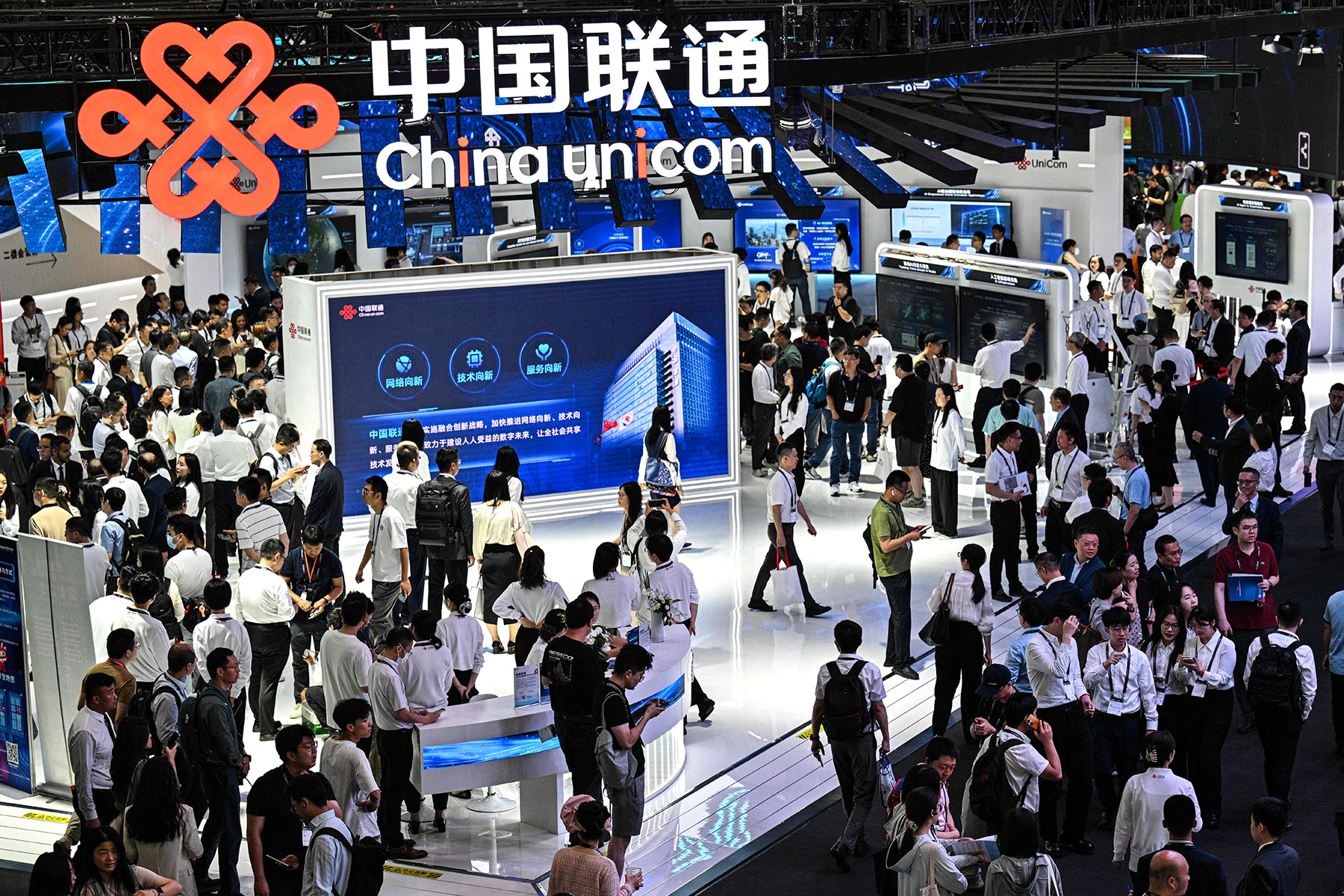Application of tech enhances innovation, production

On the factory floors of a leading appliance manufacturer in Europe, a quiet revolution is underway. China Unicom's 5G network has transformed operations at this zero-carbon smart facility, where the marriage of ultra-low latency connectivity and advanced production lines management technology has yielded remarkable results: a 30 percent reduction in product defects, 12 percent increase in production output, and annual operational savings exceeding $100,000.
This success story is being replicated across continents, from a mine in Southeast Asia where a single operator can now remotely control up to six heavy machines simultaneously, to smart ports in China where efficiency gains are rewriting operational playbooks.
At the heart of this transformation is China Unicom's innovative application of 5G networks and artificial intelligence technologies. The recent Mobile World Congress Shanghai 2025, held in late June, served as the launchpad for China Unicom's next strategic evolution with the introduction of the U PLUS SMART system.
READ MORE: 5G-A bridge to new telecom, industry era
The system deeply integrates artificial intelligence into connectivity, communications, computing, and intelligent digital applications, and is designed to enhance product capabilities, accelerate technological innovation, and expand multi-scenario applications, delivering smarter, more efficient, and secure service experiences, China Unicom said.
Zhu Hanwu, deputy general manager of China Unicom, said: "In the era of intelligence, China Unicom is deeply implementing an integrated innovation strategy, positioning internationalization as a new growth driver for the company's development. Guided by technological innovation and driven by open cooperation, the company is continuously enhancing its global operations."
He outlined a comprehensive three-pillar strategy positioning the company at the forefront of global digital transformation.
The approach begins with building hyper-connected foundations through the convergence of terrestrial networks with satellite and marine cable systems. "We are willing to work with global partners to leverage their respective resource advantages, continuously improving global network accessibility and intelligent computing resource supply capabilities," Zhu said.
Meanwhile, China Unicom is delving into industry scenarios to jointly empower global industrial transformation. The company will continue to leverage its integrated operational strengths in the internet of things, connected vehicles, and industrial internet to support more Chinese enterprises in going global and more international enterprises in entering China, creating more globally influential benchmark industry applications.
Moreover, focusing on areas such as smart living and smart mobility, China Unicom will accelerate the development of competitive products and platforms to drive the prosperity of industry chain terminals, content, and applications, Zhu added.
In late May, China Unicom (Europe) officially inaugurated its regional call center in Bucharest, Romania, marking a significant enhancement of its local service capabilities.
Xue Wenxia, general manager of China Unicom (Europe) Operations Ltd, emphasized the company's commitment to open cooperation in driving digital transformation across the continent. "This facility represents our investment in localized support as we accelerate intelligent, internationalized services for European clients," Xue said.
The expansion follows last November's launch of China Unicom (Middle East) Operations Ltd in Dubai, United Arab Emirates. Both developments underscore China Unicom's strategy to strengthen global connectivity infrastructure amid growing demand for cross-border digital services.
Markus Borchert, CEO of Nokia Shanghai Bell, a joint venture of Nokia Corp and State-owned investment firm China Huaxin, said China's big three telecom carriers — China Unicom, China Mobile and China Telecom — all attach great importance to the business of helping Chinese companies venture out into overseas markets.
ALSO READ: Telecom firms scrambling to develop 6G
According to him, Hong Kong serves as a strategic gateway for their cross-border digital initiatives.
Xiang Ligang, director-general of the Zhongguancun Modern Information Consumer Application Industry Technology Alliance — a telecom industry association — said China Unicom's fusion of cutting-edge connectivity solutions with practical AI applications offers a compelling blueprint for operational excellence in the digital age.
"China Unicom is an example of how Chinese tech companies are leveraging their pioneering solutions with the characteristics of foreign markets to solve practical problems," Xiang said.
Contact the writer at masi@chinadaily.com.cn


